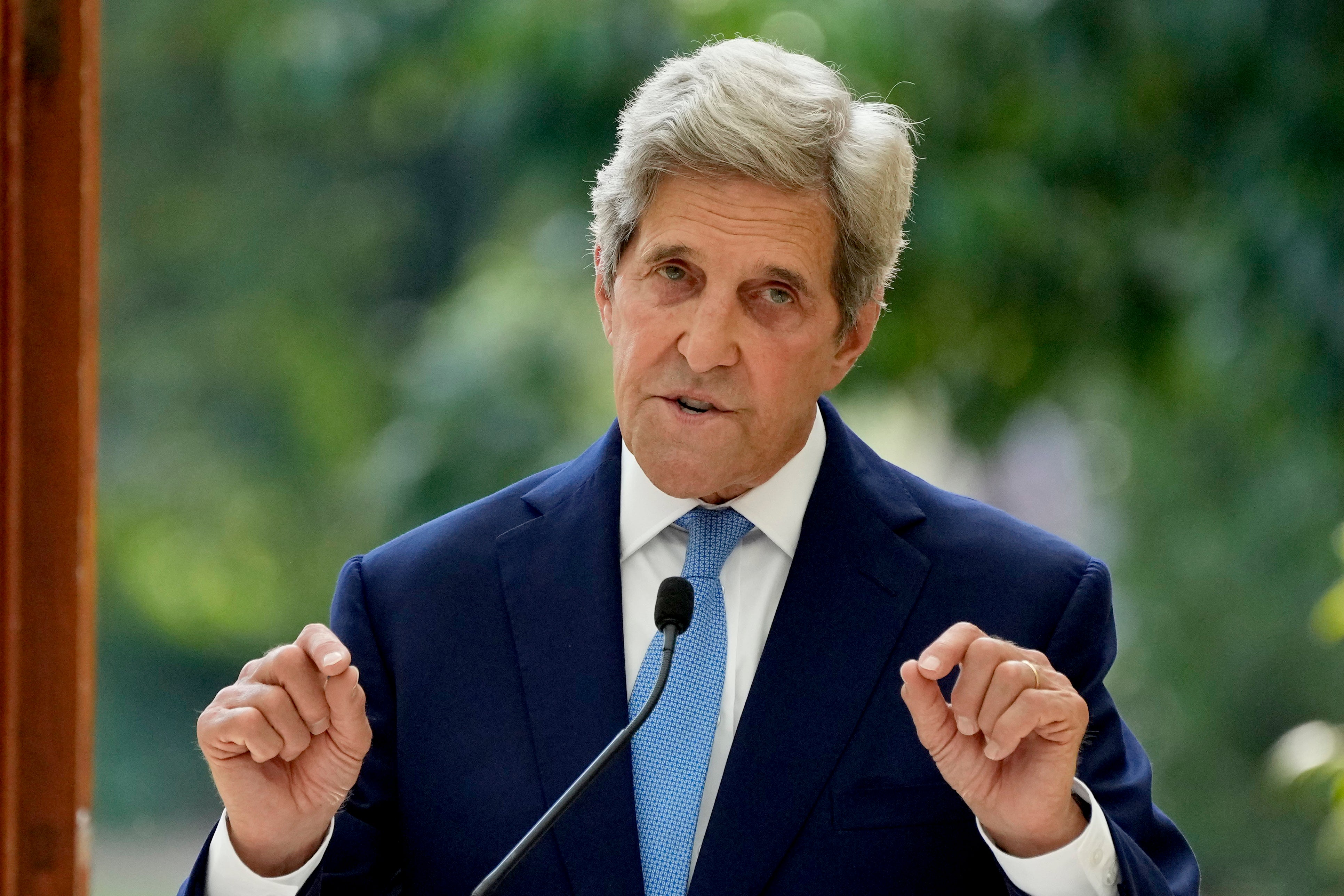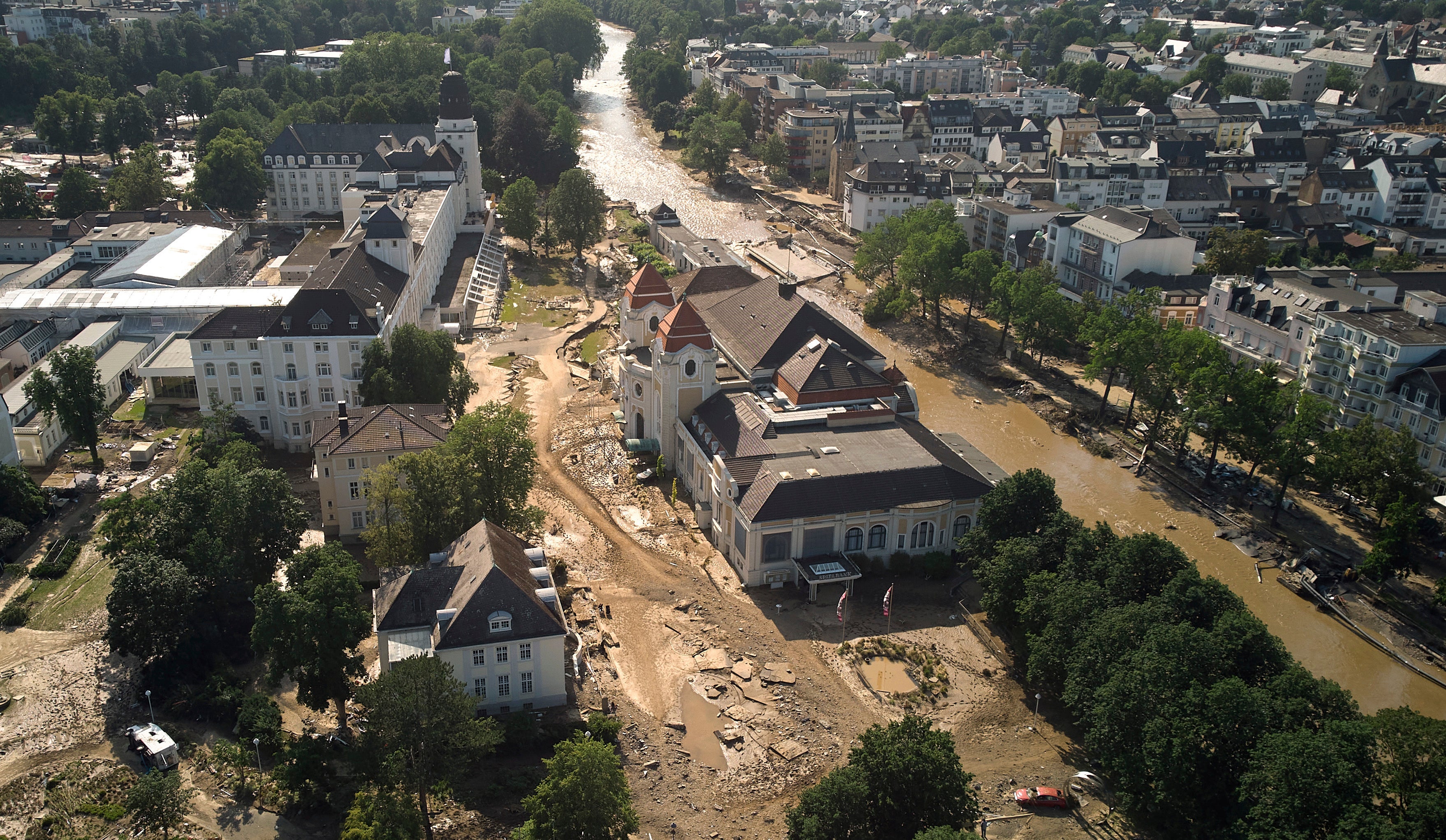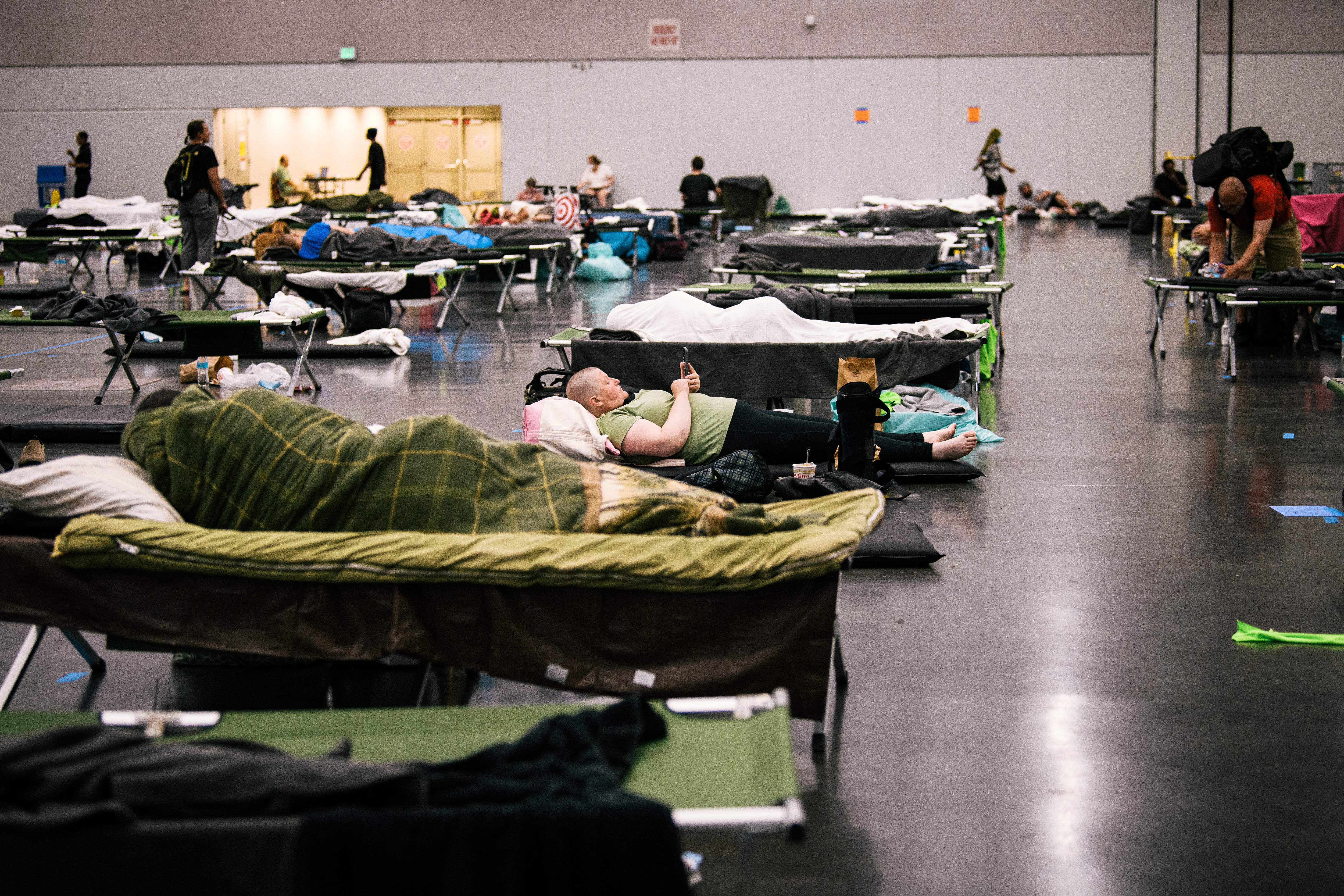100 days to COP26: What to look out for on the march to Glasgow climate summit
‘On climate, cooperation is the only way to break free from the world’s current mutual suicide pact,’ US climate envoy John Kerry said this week
Your support helps us to tell the story
From reproductive rights to climate change to Big Tech, The Independent is on the ground when the story is developing. Whether it's investigating the financials of Elon Musk's pro-Trump PAC or producing our latest documentary, 'The A Word', which shines a light on the American women fighting for reproductive rights, we know how important it is to parse out the facts from the messaging.
At such a critical moment in US history, we need reporters on the ground. Your donation allows us to keep sending journalists to speak to both sides of the story.
The Independent is trusted by Americans across the entire political spectrum. And unlike many other quality news outlets, we choose not to lock Americans out of our reporting and analysis with paywalls. We believe quality journalism should be available to everyone, paid for by those who can afford it.
Your support makes all the difference.In 100 days, the United Nations climate summit, COP26, will kick off in Glasgow.
The two-week conference is a moment of consequence: bringing together nearly 200 world leaders and 20,000 delegates along with thousands of activists, businesses, NGOs and faith groups, to hash out how to reverse the trajectory of greenhouse gas emissions heating the planet amid ever-worsening climate impacts.
“On climate, cooperation is the only way to break free from the world’s current mutual suicide pact,” said John Kerry, the US special presidential envoy for climate, during a speech in heatwave-stricken London this week.
The next 100 days could “save many lives [and] trillions of dollars”, he later told Channel 4 News.

Countries need to cut emissions, rapidly and drastically, to keep in play the 1.5C global temperature rise limit (above pre-industrial levels), and avoid more life-threatening, planet-altering fall-out. (The world has currently warmed around 1C).
While a global target of net-zero emissions has been set for 2050, much steeper cuts are needed within the next decade. And while much is riding on negotiations in Glasgow, these final few months are also crucial to progress.
“With 100 days to go, it's time to shift to sprint mode if we want to deliver a successful COP26,” Yamide Dagnet, World Resources Institute’s director of climate negotiations, told The Independent.
Here are some of the crucial issues on the road to Glasgow.
Closing the gap to 1.5C
The 2015 Paris Agreement, signed by almost every country, was a promise to keep global heating within “safe” limits, the increasingly ambitious 1.5C or “well below” 2C. The current emissions cuts put forward are not strong enough to keep to that deal, and Glasgow is the first occasion on which nations will be asked to ramp up targets and bridge the gap.
31 July is the deadline for the latest, so-called “nationally determined contributions” (NDCs) – each country’s 2030 pledge to cut emissions.
So far, 94 countries have submitted plans for a new or updated NDC, accounting for 47 per cent of global emissions.
Ms Dagnet, who spent two decades working on environmental objectives for the UK, French and Belgian governments, noted that some may skip the July deadline but use other forums. But the UN General Assembly in September would really be the final moment to make an announcement ahead of COP26, she said.

“We would like to see signals from major emitters, like China, Indonesia, Australia, and many other major economies, of more ambitious plans. And while long-term strategies may be aligned with 1.5C, shorter-term plans must also be aligned,” she said.
South Africa, rocked by recent political unrest and riots, may also come forward with a more ambitious NDC at a later point, the climate expert added.
“We understand that South Africa is considering enhancing its ambition but because of the crisis, it’s whether they are going to be able to meet the deadline or not,” she said.
“There's about 100 NDCs still missing so we hope that many will make the 31st July deadline. But the ultimate moment will be the UN General Assembly, you cannot mess with that.”
According to the most recent, scientific analysis by Climate Action Tracker, current emissions pledges put the world on track for an estimated 2.4C heating by 2100 – well above the Paris Agreement’s limits.
“The situation is that we have left everything very, very late,” Sir David King, the UK government’s former chief scientific adviser and chair of the newly formed international Climate Crisis Advisory Group, told The Independent.
He pointed to the spate of extreme events that have unfolded around the world, from devastating floods in Europe, China and India to deadly heatwaves in the US West and Canada.

“All of these events can be related directly to what’s happened in the Arctic region. [It] has heated up dramatically, and is far warmer than the rest of the planet,” Sir David said. That rapid heating has “badly distorted” the jet stream.
“The result is the weather systems of the world have produced all of these extreme patterns. It’s a direct causality,” he said.
Sir David said that part of what was required was to “stop using fossil fuels as quickly as we can” and for governments to move much faster, for example with greater production of electric vehicles, so communities do not suffer in the transition to a clean economy.
“Where we are today, with the amount of greenhouse gases we’ve put into the atmosphere already, is far too serious for us to really consider that the future of our civilization is safe even if we were to reduce emissions to net zero tomorrow,” he added.
Expect to see more pressure on the fossil fuel industry in the run-up to COP26. The UK government has already said that sponsorship from the sector is not welcome at the climate summit.
Meanwhile, climate activist groups such as 350.org and Stop the Money Pipeline are ramping up pressure with campaigns like “Deadline Glasgow” to hold global leaders and the fossil fuel industry to account.
The ‘warm-up’ events
A packed calendar of international events remains ahead of the November summit, including next week when more than 40 ministers from around the world will gather in London to discuss plans for Glasgow.
There’s also a Youth Summit, the annual UN General Assembly in New York in September and the UN Biodiversity Conference a month later in Kunming, China, to name just a few high-level discussions taking place. COP also has a “pre-COP” for last-minute preparations, being held in Milan in early October.
Ms Dagnet said that recent extreme weather and record-smashing temperatures, particularly in North America and Europe, could “demonstrate a change of mindset to take this absolutely seriously”.
But after a disappointing G7 summit – where the high-polluting group failed to agree on an end date for coal use – skepticism abounds, particularly on what the UK can deliver as COP hosts.
“It’s a concern that with just 100 days to go before COP26 we are not seeing the kind of leadership we’d expect from Boris Johnson as prime minister of the host nation and Rishi Sunak who are noticeably absent when it comes to climate policy,” said Amanda Khozi Mukwashi, CEO of Christian Aid, in a statement.
“We need them to have much more of a presence to ensure the UK is going to deliver a successful summit that puts the world on a path to a safe climate.”
Part one of the world’s most seminal climate report is published
The Intergovernmental Panel on Climate Change (IPCC) – the body behind the world’s most comprehensive scientific report on the climate crisis - is expected to publish the first chapter of its three-parter, sixth assessment (called AR6) on 9 August.
Following rounds of exhaustive peer-review and revision, this will be the biggest update on climate science since the last IPCC report in 2014.
The first chapter will lay out how greenhouse gases (GHG) are causing unprecedented damage, covering extreme weather, the carbon budget and feedback cycles, along with charting the current state of the climate and future scenarios.
The second and third chapters – examining our vulnerability to climate impacts, and mitigating the crisis, respectively – will not be published until 2022, after COP26.
Outside scientific observers have suggested that the updated report will likely be a more strongly-worded statement on the human influence on the climate system than previously. In the last decade, the climate science field of attribution – that looks at how (and by how much) human activities lead to climate change – has significantly progressed.
AR6 is also expected to look more closely at the climate crisis’s regional impacts around the world.
The $100bn-dollar question of climate finance
One of COP26’s top priorities is making people, economies and the environment more resilient and adaptable to the climate crisis.
Yet wealthy nations are still shy of an annual $100bn (£73.4bn) climate finance target to help poorer countries with extreme impacts, which are already causing thousands of deaths, displacement and loss of livelihoods.
The US’ Mr Kerry said this week that the current pot of money has around “80-something” billion but insisted that the $100bn target would be met because it “needs to be there”. COP26’s UK president, Alok Sharma, has also said that developed countries will produce a “clear plan” for meeting the annual $100bn from now until 2025.
Ms Dagnet said that it was a question of trust for less wealthy, climate-vulnerable nations.
“They want to see solidarity and cooperation on finding approaches,” she said. “The upcoming IPCC report will only emphasize what is coming for us.”
She added: “It’s an issue of trust but also looking forward because $100bn was supposed to be the floor, as per the Paris Agreement.”
An increased financial target is expected to be set at COP26. Climate finance is crucial in tackling the politically fraught issue of “loss and damage” – reparations for vulnerable countries, many on the frontlines of the crisis, who are reaching the limits of adaptation to catastrophe.
The importance of the financial support in boosting chances of a successful COP cannot be understated.
Anna Åberg, from the Energy, Environment and Resources Programme at policy institute Chatham House, wrote in The Independent that one adviser for climate-vulnerable nations had conveyed that “if the money is not delivered before November, then there is little point in climate-vulnerable nations showing up in Glasgow to do business with governments that break their promises”.
‘Localism’ and making an ally of nature
The final run-up to the summit aims to draw attention to the climate crisis and galvanize action around the many paths it will take to reach net-zero.
Away from the international stage, there will be a push from those working at regional and local levels to showcase just what all that action looks like on the ground, and in practice.
Ric Casale, co-founder of Carbon Copy, a charity driving localized climate projects, told The Independent: “The good news is we don’t need permission to take the lead on climate change. We’re not asking for permission from the people at COP.
“We clearly need more supportive, top-down policies but we have sufficient resources and power collectively to start to move the needle – and more so where we live.”
A list can be found here on a plethora of projects in what’s been dubbed the “Race to Zero”. The summit will be accompanied by hundreds of sideline events in the Green Zone from youth groups, charities, academia, artists and businesses. Glasgow City Council will also have its own host zone.
Mr Casale added: “From my perspective, a bigger story than what's happening nationally in Westminster, and what’s going to happen internationally in Glasgow, is all the things happening in between, in local climate action. People are getting on and doing as best they can with whatever resources they have.
“Local [action] is in many ways leading on levels of ambition and, in certain areas, on implementation.”
COP26 will also turn to a long-overlooked ally in tackling the climate crisis – nature itself. Using forests, agriculture and ecosystems as reduce global heating is at the forefront of plans for many NGOs and conservation groups - and the business sector is increasingly getting on board with innovations from seaweed to coral reef restoration. It’s believed that “Nature-based solutions” can help to deliver more than a third of the Paris climate goal.
The ongoing pressure of the pandemic
Alok Sharma has insisted that COP26 will go ahead in person but the pandemic is casting a long shadow over the international summit.
The UK is offering vaccines to those officially attending, who are unable to access one in time for the summit.
But despite best-laid plans, there are still many variables to contend with. The ever-shifting and often confusing Covid travel rules will make journeys to Scotland a complicated undertaking. Meanwhile, the emergence of new Covid variants and rising case numbers in the UK are cause for concern.
There is great reticence to holding a “mini-COP” and making parts of it virtual, particularly for poorer countries whose less reliable Internet access would immediately place them at a disadvantage.
Smaller nations also gather in blocks to create leverage in the face of powerful participants like the US, EU and China, which will be near impossible to organize online.
And the power of the global climate summit is in the countless face-to-face meetings between delegates from different countries, where much of the nuts and bolts of deals are worked out behind the scenes.

Join our commenting forum
Join thought-provoking conversations, follow other Independent readers and see their replies
Comments